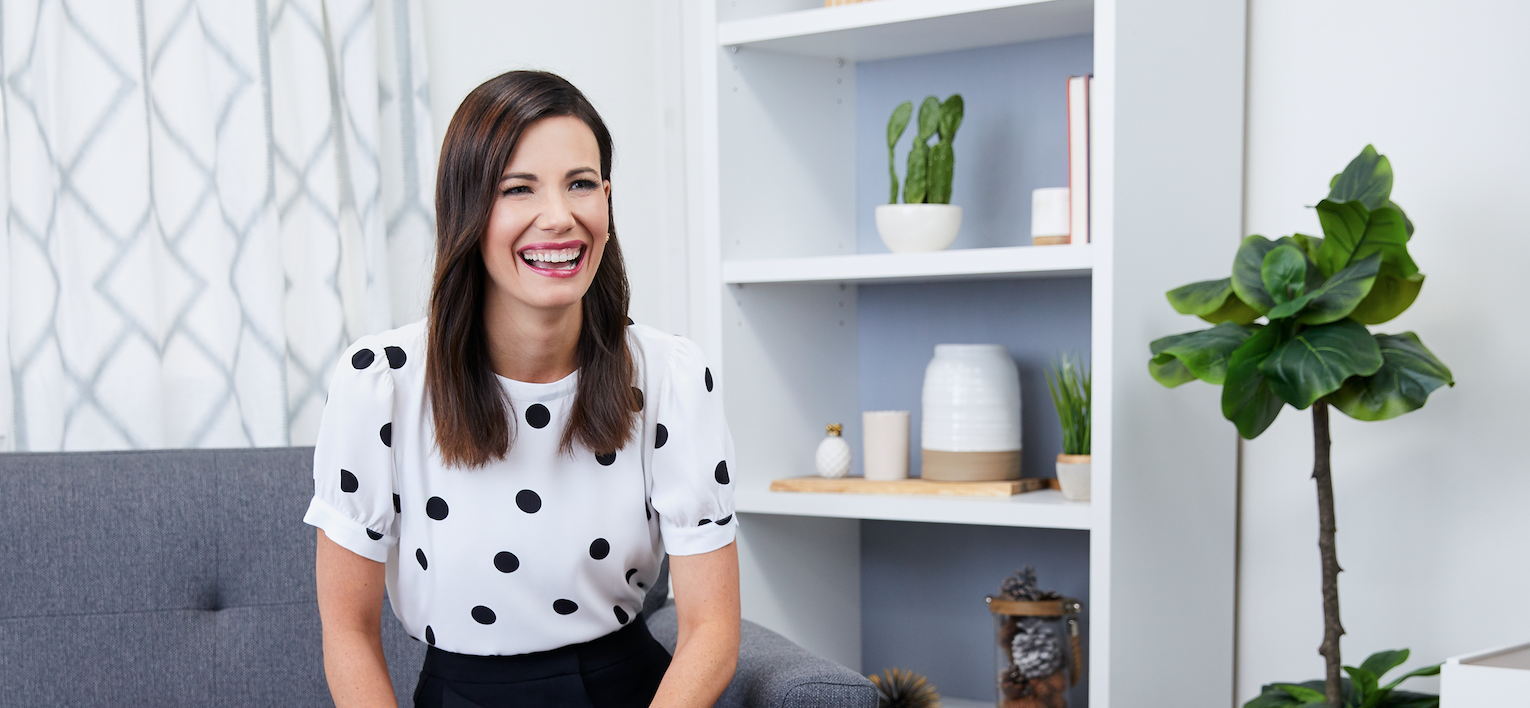
The Cost of Comparison
What would your life look like if you didn’t have to worry about money? What would you be able to do?
What I’ve learned from traveling across the country, speaking to individuals from all walks of life, is that money is a big area where people would love to see freedom. The freedom to pursue a passion, give to causes they care about, and just generally do more of what they love and less of what they don’t.
But so many people are kept from doing those things because of their spending habits. A paycheck comes in and goes right out the door toward debt payments—along with hopes and plans for the future. It’s hard to break the cycle of living paycheck to paycheck when there are so many pretty new things to buy all the time, right?
The struggle is real. We see Facebook, TV and Instagram ads every single day. Actually, it doesn’t even need to be an ad. Social media does a great job of making it easy to compare our wardrobe, our vacations, and our whole lives to other people’s. I mean, just search the hashtag #todaysoffice on Instagram if you want to feel like you lead the most boring life in the universe. (Spoiler alert: You’ll see a lot of beaches, pools, and even snowcapped mountains.)
After a scroll through social media, sometimes I’m left feeling like my life isn’t good enough. And the natural result of those comparisons is wanting to spend more to keep up.
You see, comparison doesn’t just steal your joy. It steals your paycheck as well.
Comparison living will leave you feeling like a hamster on a wheel—running as hard and fast as you can and getting nowhere. You’ll never earn enough money to be able to spend enough to feel good enough.
So I want to encourage you to try what I did. I stopped focusing on others and turned my attention back to my life. I traded in comparison living for contentment. Cultivating contentment was a game changer for me, my relationships, and my bank account. As I researched and practiced contentment, I realized a few important things about people who are content:
- They don’t spend as much money, because they don’t feel the pressure to keep up with a certain standard of life they can’t afford.
- They put fancy date nights on pause while they’re getting out of debt, because debt-free dates taste so much better!
- They investmoney toward retirement, because they know their future self wants a great life too.
- They can break the cycle of living paycheck to paycheck, because they don’t have to spend money just to feel worthy.
Now hear this, friend: Contentment isn’t a place you get to financially. It doesn’t come more naturally to people with bigger paychecks. It’s a place you get to emotionally and spiritually. Contentment is the inner determination to be happy and fulfilled wherever you are, with whatever you have.
The Apostle Paul put it like this: “. . . I have learned how to be content with whatever I have. I know how to live on almost nothing or with everything . . .” (Philippians 4:11–12 NLT).
So, how can you work toward a life of contentment? I believe it starts with gratitude. Because in a heart filled with gratitude, there is no room for discontentment.
The thing that’s helped me the most with being grateful for what I already have is journaling. Journaling is powerful. It allows us to take inventory of our lives and our blessings. It’s also the one place we can write whatever we’re feeling—our dreams, our disappointments, our prayers—without judgement. All by ourselves, with a pen and paper, in the midst of uncertainty and the unknown, we grow.
I’ve made journaling a habit by writing down two things I’m grateful for every morning. Over the years, I’ve filled dozens of journals, and I love going back through them to remind myself of all the incredible things God has put in my life.
Try these four steps to incorporate journaling into your daily life:
- Pour yourself a cup of coffee.
If you don’t drink coffee, have a cup of tea or eat something. This step is all about waking up your metabolism so you can focus.
2. Look at something that inspires you.
Read your Bible, look at pictures of your loved ones, or find inspirational quotes from your favorite author. This is just to get your brain going and put you in an inspired mental state.
3. Start writing.
You can write down just two things like I do, or you can do more. Don’t think too hard—you don’t have to be profound. These are meant to be real, heartfelt notes of thanksgiving. I actually created something exciting to help with this part: The Contentment Journal. It’s a guided journal with prompts to help you capture what matters most to you.
- Make it a habit.
Journaling is just like exercising a muscle: The more you do it, the easier it will become. When you work gratefulness into your daily life, you begin to see the world a different way. The key is to continue writing in your journal every day, even when it’s hard.
University of Michigan psychologist Christopher Peterson said, “There are no long-term quick fixes for happiness.So if you become a more grateful person and you add those exercises to your repertoire, you’ll be different six months or a year from now. But if you say, ‘Okay . . . I’m going back to the way I was,’ it’ll just have been a six-week high.”
Go ahead and try this for 90 days. Focus on the blessings you have, but also focus on the future and write out your thoughts. Consider what you can do as an individual to move beyond complacency and create a life you love.
At the end of the 90 days, I believe you’ll feel more in tune with yourself, with others, and with God. And yes, I bet you’ll even have more money.
This is your life, and you get to make up your own mind. How are you going to live it? Are you going to be caught up in comparisons and credit card bills for the next 50 years? Or are you done spending your hard-earned money on stuff to impress everyone else on social media?
Content people don’t always have the best of everything, but they make the best of everything.
My hope for you is that you can stop comparing your life to everyone else’s and avoid the high cost of comparison living. Then, take control of your money and create a life you love!
As a #1 New York Times best-selling author, host of The Rachel Cruze Show, and The Rachel Cruze Show podcast, Rachel helps people learn the proper ways to handle money and stay out of debt. She’s authored three best-selling books, including Love Your Life, Not Theirs and Smart Money Smart Kids, which she co-wrote with her father, Dave Ramsey. You can follow Cruze on Twitter and Instagram at @RachelCruze and online at rachelcruze.com, youtube.com/rachelcruze or facebook.com/rachelramseycruze.














